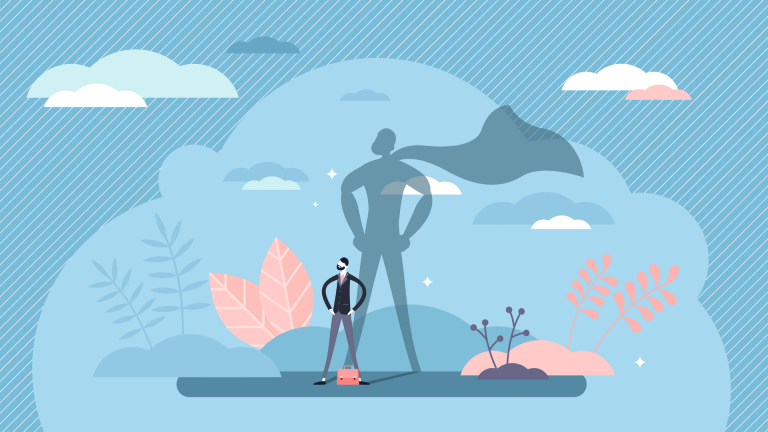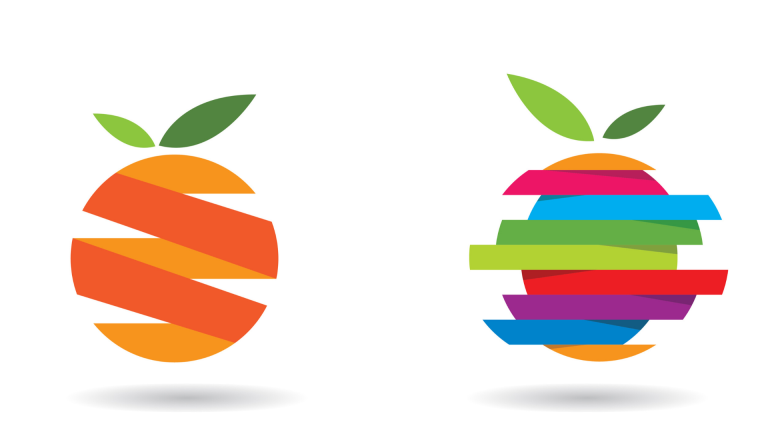
Building Resilience to Lead Your Company Through a Crisis
Today, companies are doing all they can to survive. Will there be clear winners, or will the companies that survive simply be those that demonstrate the greatest level of resiliency?
Products
Our Platform
SoundHound’s independent voice AI platform is built for more natural conversation.
Solutions
For Every Industry
Find a customizable and scalable voice AI solution for your industry or use case.
Resources
Get the latest voice AI news, keep up on trends, get expert advice, and discover new solutions.


In the past few weeks, we’ve been sharing advice for brands on coming out of this crisis. We’ve been adding videos, resources and blogs to our digital guide, “Road to Recovery: Fueling the Next Wave of Innovation,” in which academics, thought leaders, and industry experts share their insights on innovation, messaging, engaging employees, building community, and building resilience.
The path has been rocky for many companies, and the future is still uncertain. But in the midst of all that has transpired, a few companies have risen like cream to the top to show us how to make the most of a situation. These top brands not only responded quickly, they also responded in ways that made a positive impact or inspired us to keep innovating, even in the face of adversity.
We wanted to share a few of these stories in the hopes that you’ll find inspiration to lead your brand to greater resilience, agility, and innovation to meet the challenges still before us.
In a recent interview with Jason Feifer, editor in chief, Entrepreneur Magazine and host of the Pessimists Archive podcast, he talked about a company that saw a new need in the restaurant business and quickly filled it. Here’s what Jason had to say about Franklin Junction:
“Franklin Junction has done a great job of pivoting into this new environment. If you are in America and you order lunch, you go on GrubHub or some other site. You go on to order lunch for delivery from, let’s say the Captain’s Boil, which is a seafood franchise. That food might actually be made inside a Ruby Tuesdays. And then it arrives to you. And you don’t know that it came from Ruby Tuesdays kitchen and that’s thanks to Franklin Junction. What I love about this company is that it has identified a pain point in the restaurant industry, which is that there is extra capacity in kitchens.
There was extra capacity in kitchens before this, but now obviously, as restaurants have been struggling, there is far more capacity. And so the question is, how can these kitchens start making more money, utilize themselves more? Franklin Junction’s answer is, what if multiple brands could operate out of the same kitchen? Kind of like a ghost kitchen, except that you don’t need to build a whole new kitchen. You’re just using existing infrastructure from restaurants. So this is a really interesting solution to a new problem. A restaurant brand might want to expand into a new marketplace now or in the near future. In fact, Captain’s Boil only has restaurants in Canada. There are no restaurants in America. So if they want to come into the American market at the same time, and Ruby Tuesday wants to start using its kitchens more, because those kitchens are expensive and they would like to drive more revenue inside of those kitchens, it’s a great match.
So now, the brands outside of this market can get connected with brands inside a market that have extra kitchen capacity and they can start working together. It’s a really smart solution. Once the pandemic began, there was suddenly a surge of interest and need for this platform. And so they saw an unbelievable spike in the number of people who are interested in utilizing this. And I think that goes to show you something really important. This is an idea that really challenges the very concept of what a restaurant is. It’s a big change for the restaurant industry.”
In this interview with Restaurant Business, Aziz Hashim, founder of Franklin Junction, explains:
“We decided to take this step and let everybody have this now. If a restaurant can benefit from our platform, it may save many restaurants and many jobs.”
Aziz Hashim, founder of Franklin Junction
The article also adds: “Hashim likened Franklin Junction to a combination of Match.com and Airbnb, but tailored to the restaurant industry. The company matches restaurant host kitchens with restaurants interested in trying out new markets. But it also helps existing restaurants fill excess capacity, much like Airbnb connects owners of vacation homes or other properties with vacationers.”
In all our interviews, experts emphasized the need to look for opportunities to change the status quo. Through innovative thinking that pushed the boundaries, Franklin Junction was able to help the restaurant industry with an innovative approach that met the new need created by an unpredictable situation.
Ever since the shelter-in-place requirements were implemented across the world, brands are being recognized for their actions, their messaging, and the ways in which they are trying to be helpful and build community. While some have remained silent, others have communicated without real action or meaning, and still others have completely missed the opportunity by continuing to show tone-deaf ads that promote products and show people happily engaging with each other under normal circumstances.
One company that has gotten the messaging right, according to Paul Argenti, professor of corporate communications at The Tuck School of Business, Dartmouth, is Unilever with its Dove soap ads. Dove launched its “Take Care, Be Safe” campaign during the COVID-19 pandemic to help front-line caregivers, essential workers, and people who are social distancing by dedicating products and resources, offering hand-washing guidance, and donating financial support to relevant efforts worldwide. In addition to producing the digitally-untouched Courage is Beautiful film that celebrates the bravery and selflessness of healthcare workers, Dove also supports the community at-large through their timely initiatives.
As always, Dove ads highlight real people, their perspectives, and the need to change our beliefs about what is beautiful.
During a recent interview, Paul Argenti describes how Unilever is winning with this campaign:
“I’ve really enjoyed the Dove campaign. That ad ran back to back one night on the news. The only time we watch advertising for most of us is during live TV and there’s a lot more live TV in our lives as a result of watching the news during the pandemic. The Dove ad had pictures of healthcare workers with marks on their faces from wearing masks for hours at a time. Firstly it was linked to a previous campaign that everyone would remember about what real beauty is. So I think there’ve been a few examples that really stand out like Dove, but there’ve also been a lot of ads that have been just absolutely terrible.”
We don’t need to review the terrible ads. We’ve all seen them. Companies that remain completely tone deaf or without the internal structures to quickly change direction when it’s necessary to demonstrate true corporate responsibility and values.
One of the greatest disruptors to our daily lives during COVID-19 has been the uncertainty caused by ever shifting messaging and restrictions from government and health officials. The constantly changing guidelines from states, counties, and localities have caused additional stress and anxiety as people search for the most up-to-date information. One company, Audioburst, has made it their mission to get the latest news to people as soon as it happens. Bret Kinsella, CEO and founder of Voicebot.ai, shared the details with us during a recent interview:
“Audioburst is actually a really interesting aggregation solution where it has all this audio content from radio stations, podcasts, and it indexes them by a personal preference and topic. It automatically cuts them into short clips, which are really topic specific, So, if you think about it, a radio program that just aired might have a five-minute segment of which one minute and 10 seconds was on Coronavirus. A podcast might’ve had a four and a half minute segment where they were talking about Coronavirus in California and they were able to actually automatically extract this information and put it into essentially an audio news feed. And they do this for lots of different organizations, and for websites in order to have audio content. They do it for automotive companies, they’ve done it inside of apps and they have their own demonstration app and that app turned out to be really interesting because in February they created a stream called Coronavirus so that anybody could get up-to-date information very quickly from thousands of news sources.
Some of those were news clips that aired live on a radio station or a new podcast. Within minutes of when they air, you can hear them one after another from all these different sources trying to keep you up to date. I thought it was really interesting that Audioburst did that utilizing their core technology to aggregate information around a single topic from multiple sources and then put it all in one place to really create heightened convenience for people wanting to keep track of what was going on when the pandemic was moving at its fastest.”

Image source: Audioburst [link https://search.audioburst.com/playlist/Coronavirus ]
The brands that will emerge as leaders during this crisis and in the future are those that find ways to be useful. Innovating or simply responding to a market need with an innovation that already exists can help grow your customer base, or at least build more trust with the customers you already have.
Responsiveness, agility, and the ability to make changes quickly in response to sudden disruptions are features of “whole brands.” In a discussion about resilience and responsiveness, Ravin Jesuthasan, futurist, author and managing director of Willis Towers Watson, shared some examples of organizations that have put the needs of their employees, the community, and other key stakeholders ahead of immediate profit.
Ravin explains how these companies were able to rise above their own profit and loss sheets to make a positive impact for their key stakeholders:
“Examples of organizations that are responding to changes include some auto manufacturers who are now making ventilators and distilleries that switched to producing hand sanitizer. We’ve also seen organizations move their talent from their business to other companies to allow their talent to contribute skills outside the company. You’ve got the airlines that are redeploying their talent, for example in the UK you’ve got British Airways staff working with the NHS to resource the Nightingale Hospital. You’ve got McDonald’s in Germany allocating its staff away from its restaurants, to a very large retailer Aldi. The unique partnership helped Aldi stores manage a huge spike in demand for at-home food during the pandemic while redeploying a restaurant workforce affected by closings and restricted operations.
We’ve also seen Sysco redeploying its employees to support Kroger, one of its customers. “During these unprecedented times, we are pleased to partner with Kroger, as both of our companies work to respond in an agile manner to meet the rapidly evolving needs of our associates and our communities,” said Kevin Hourican, president and CEO of Sysco. “This agreement will benefit many of Sysco’s associates by creating good work opportunities with a respected company, while at the same time helping to alleviate strain in the food supply chain due to a surge in demand at retail stores.”
These are just a few examples of how companies are thinking beyond their own unique needs and beyond their own boundaries.
It’s heartening and inspiring to see how brands are innovating during these difficult times and how other brands have taken their messaging, offerings, and even their stakeholders in a different direction in response to the immediate needs of people during a crisis.
While some of these pivots won’t last forever—car manufacturers will surely go back to manufacturing cars instead of ventilators— these brands have won our admiration and hearts. As we slowly emerge from our current state of isolation, what will the impact be on the brands that were present and active during this time? Like everything involved with this pandemic, the future is uncertain. But, if the experts’ predictions are correct, those brands that were agile, nimble, and resilient during this crisis will be the ones people choose to do business with in the future.
Looking for more expert advice? Our Road to Recovery Guide is already inspiring brands towards doubling down on innovation, building resilience and planning for the road ahead. How will your company fare on the road to recovery? What should you focus on to come out of this crisis stronger? We’ve gathered timely advice from industry experts, thought leaders, and brand executives on how to spur innovation, seize new opportunities, and create meaningful connections on the road to recovery.
Other blog posts in this series include:

Karen Scates is a storyteller with a passion for helping others through content. Argentine tango, good books and great wine round out Karen’s interests.
Subscribe today to stay informed and get regular updates from SoundHound Inc.